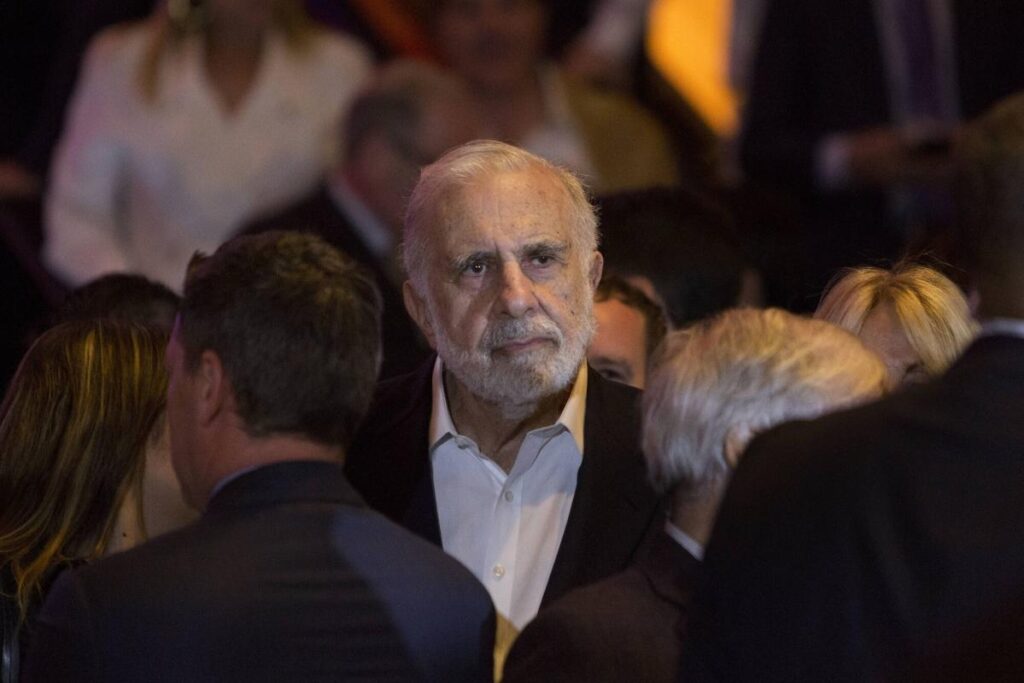(Bloomberg) — Carl Icahn’s holding company authorized a buyback equaling almost 27% of its shares trading on the open market, potentially boosting the stock price as the financier feuds with a short seller.
Most Read from Bloomberg
Icahn Enterprises LP’s board of directors approved a $500 million buyback on May 9, according to a regulatory filing. It marks the first time the company, which invests in a wide range of businesses, has adopted a formal share repurchase program since 1987, public documents show.
The filing also revealed that Icahn increased the number of shares pledged to secure his personal debt. More than half of the firm’s shares are now pledged to secure his margin loans. The company didn’t reply to messages seeking comment.
Icahn Enterprises’ shares have lost more than a third of their value since short seller Nate Anderson’s Hindenburg Research released a report last week claiming the company was overpriced, contending it found evidence of inflated asset evaluations. Icahn, 87, has a record of waging corporate battles, including a short squeeze he orchestrated a decade ago against billionaire investor Bill Ackman’s $1 billion bet against Herbalife Ltd.
Based on Wednesday’s closing price, the buyback would permit Icahn Enterprises to repurchase about 15.5 million shares, or almost 27% of the publicly traded float. Depending on how it’s conducted, a buyback of that magnitude could jump-start Icahn Enterprises’ stock price, potentially squeezing short sellers such as Hindenburg.
Icahn Enterprises didn’t buy back any shares between 2001 and 2020, according to company documents. In 2021 and 2022, its only repurchases were technical in nature — a small number of shares were withheld to pay taxes on executive stock awards.
The new repurchase authorization is for an indefinite period, according to the filing, and doesn’t expire until it’s terminated by the board. The company can buy back the stock for cash in the open market through tender offers or in privately negotiated transactions.
Icahn Enterprises’ board also approved a buyback for as much as $500 million of the company’s fixed-rate senior unsecured notes. On Thursday, Hindenburg said it had initiated a short position in Icahn Enterprises’ bonds — without specifying which debt securities — and reiterated its short position on the holding company’s shares.
Risk Factor
While the company has roughly 369 million shares outstanding, Icahn controls more than 84% of the stock through affiliates. That leaves about 58 million shares, worth about $1.86 billion, to trade on the open market.
Icahn has pledged more than three times the publicly traded float to secure his margin loans, according to the filing, which revealed the increased number of pledged units under a new company risk factor. More than half of Icahn Enterprises’ total outstanding shares are pledged to secure Icahn’s personal debt.
As of Monday, Icahn had pledged 206 million shares currently worth about $6.2 billion, up from about 168 million shares in February.
Icahn owns his shares through intermediaries whose lenders include Morgan Stanley and Deutsche Bank AG, according to filings. It’s not clear if those loans are the same as the margin loans referred to in Icahn Enterprises’ filings.
After Icahn Enterprises tumbled last week, Ackman tweeted that there was a “karmic quality” to Hindenburg’s short position at his rival’s company. Ackman ultimately exited his $1 billion short position on Herbalife after Icahn squeezed him by buying millions of shares in the nutrition company.
(Adds past repurchases in sixth paragraph and bond buyback in seventh paragraph)
Most Read from Bloomberg Businessweek
©2023 Bloomberg L.P.


